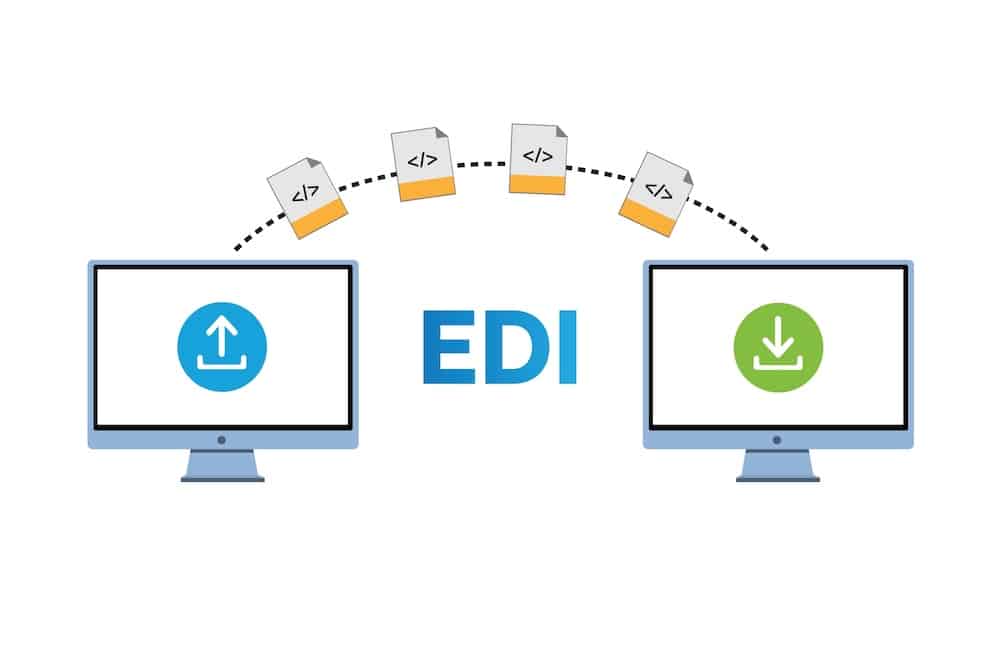The Food Safety Modernization Act (FSMA) is transforming food safety standards across the United States, with a critical compliance deadline looming on January 20, 2026. This landmark regulation shifts the emphasis from reacting to food safety incidents to proactively preventing them, aiming to significantly mitigate the risk of foodborne illnesses. For stakeholders in the food supply chain, including producers, shippers, and warehousers, navigating the FSMA’s stringent requirements is not merely a matter of legal compliance; it’s a commitment to safeguarding the health and well-being of consumers. As the deadline approaches, leveraging technology, especially solutions like ASCTrac® by ASC Software, is key to simplifying the complexities of FSMA compliance, ensuring the new traceability standards are met efficiently without disrupting day-to-day operations.
Understanding FSMA’s New Traceability Requirements
Under the FSMA, an unprecedented level of traceability is required in the food supply chain, necessitating detailed tracking of food products from their point of origin to the end consumer. This initiative is designed to bolster the FDA’s capability to swiftly identify and rectify food safety issues, thereby ensuring a more secure food supply chain.
Businesses are now tasked with the responsibility to meticulously record and manage Key Data Elements (KDEs) at various Critical Tracking Events (CTEs) throughout the food supply chain. Additionally, understanding which products fall under the Food Traceability List (FTL) and developing a comprehensive Traceability Plan are crucial steps towards compliance. This means capturing comprehensive information about the journey of food products, including the sources of ingredients, the processes and handling they undergo, their distribution channels, and assigning a Traceability Lot Code (TLC) when necessary. The objective is to establish a transparent and traceable data trail for each food product, facilitating prompt actions in the event of contamination or safety concerns.
For many in the food industry, adapting to these intricate traceability requirements is a formidable challenge, especially for those who have traditionally relied on manual processes or outdated technologies. This is where the value of ASC Software’s solutions become evident. By automating the tracking of Key Data Elements at Critical Tracking Events, ASCTrac® not only supports FSMA compliance but also enhances operational efficiency, improving productivity across the entire supply chain.
FSMA Compliance Date:
According to the FDA’s FSMA Final Rule on Requirements for Additional Traceability Records for Certain Foods, the compliance date for all parties subject to this requirement is Tuesday, January 20, 2026.
Struggling with Traceability and Compliance Challenges?
Streamline your compliance and traceability processes with our advanced solutions. Contact us to learn how we can help you meet industry standards effortlessly.
Ensure ComplianceQuick Reference:
- Key Data Elements (KDEs): Specific pieces of information that must be recorded at certain stages in the food supply chain. KDEs include crucial details such as the origin of ingredients, processing history, and distribution paths.
- Critical Tracking Events (CTEs): Key stages in the food supply chain where recording KDEs is mandatory. CTEs cover a range of activities, including harvesting, processing, shipping, and receiving, thereby creating a comprehensive record of a food product’s journey from farm to table.
- Food Traceability List (FTL): A list of foods for which additional traceability records are required under the FSMA. Identifying whether your products are on this list is essential for compliance. Some of the foods included on the list include cheeses, eggs, nut butters, some vegetables and fruits, and several types of fish.
- Traceability Plan: A document outlining how a company intends to comply with the FSMA’s traceability requirements, including how it will record and maintain KDEs for CTEs.
- Traceability Lot Code (TLC): A unique code assigned to a batch of products to facilitate traceability throughout the supply chain.

Step-by-Step Guide to Achieving FSMA Compliance
Navigating the FSMA compliance landscape requires a structured approach. Here’s a general guide that any food industry stakeholder can follow, with selective insights on how technology, like ASC Software, can support these efforts:
1. Conduct a Comprehensive Assessment:
- Start by evaluating your current processes against FSMA’s traceability requirements. Identify where your operations align with the law and where gaps exist.
- Consider consulting with a compliance expert to ensure no detail is overlooked.
2. Develop a Detailed Compliance Plan:
- Assessment Outcomes: Utilize the insights from your comprehensive assessment to identify gaps between your current processes and FSMA’s traceability requirements.
- Action Plan: Create a detailed action plan that addresses these gaps. This should outline responsible parties, timelines, and specific actions needed for compliance, ensuring your operations align with FSMA standards.
- Food Traceability List (FTL) Identification: Determine which of your products are on the FTL as this affects the scope of your traceability requirements.
- Traceability Plan Development: Develop a Traceability Plan that specifies how your business will manage Key Data Elements at Critical Tracking Events and the assignment of Traceability Lot Codes. This plan is your roadmap to FSMA compliance, detailing the processes for capturing and maintaining the required data.
- Leverage Technology: Consider implementing technology solutions to automate the tracking of KDEs at CTEs, which can significantly reduce the manual effort required and minimize the risk of errors. Solutions like ASCTrac® are specifically designed to support FSMA compliance by offering functionalities tailored to the food industry’s needs.
For additional guidance on creating a comprehensive food safety plan that aligns with FSMA requirements, the FDA offers valuable resources and templates. Developing a robust food safety plan is crucial not only for compliance but also for ensuring the safety and well-being of consumers.
Read more: Developing a Food Safety Plan
3. Upgrade or Implement Necessary Technologies:
- Evaluate software solutions that can help automate and manage the required data for FSMA compliance. While many options exist, ASCTrac® offers functionalities specifically designed to streamline compliance processes.
- Ensure whatever solution you choose integrates well with your existing systems to maintain operational continuity.
4. Train Your Team:
- Comprehensive training for your staff on new processes and technologies is crucial. Everyone involved should understand their role in maintaining compliance.
- Continuous education on FSMA regulations will help keep your team informed and compliant.
Read more: FSMA Training
5. Monitor, Audit, and Update Your Compliance Efforts:
- Regular monitoring and auditing of your compliance status are essential. This should include both internal audits and, if possible, third-party evaluations.
- Stay informed on any updates to FSMA regulations to ensure ongoing compliance. Regulatory landscapes can evolve, necessitating adjustments to your compliance strategy.
By following these steps and leveraging technology where appropriate, businesses can navigate FSMA compliance more effectively. The inclusion of specific FSMA components like the FTL, Traceability Plans, and TLCs in your compliance plan ensures a comprehensive approach, addressing all regulatory requirements and setting a solid foundation for food safety in your operations.

Preparing for the Future: Beyond Compliance
Achieving FSMA compliance is not just about meeting regulatory requirements; it’s an opportunity to enhance overall food safety and operational efficiency. Here’s how businesses can look beyond compliance:
- Embrace a Culture of Food Safety: Foster a workplace culture where food safety is a shared responsibility and value. This cultural shift can lead to more proactive and innovative approaches to safety and compliance.
- Leverage Data for Continuous Improvement: Use the data collected through compliance efforts to identify opportunities for operational improvements. Analyzing trends and patterns can reveal areas for efficiency gains or risk mitigation.
- Stay Ahead of Industry Trends: By being proactive in compliance and adopting advanced technologies, businesses can position themselves as industry leaders. This can enhance brand reputation and customer trust.
- Prepare for Future Regulations: Use the foundation built for FSMA compliance to adapt more easily to future regulations. A flexible and scalable approach to compliance can make navigating future changes less disruptive.
ASCTrac®: Your Partner in FSMA Compliance
Navigating FSMA compliance demands a reliable technological partner. ASCTrac® by ASC Software offers a solution tailored for the unique needs of the food industry in this evolving regulatory landscape. It streamlines FSMA compliance by automating the tracking of Key Data Elements at Critical Tracking Events and simplifies adherence to the Food Traceability List, making it easier to develop Traceability Plans and assign Traceability Lot Codes.
Key Features of ASCTrac®:
- Automated Traceability: Simplifies tracking from ingredient origin to final product delivery, ensuring compliance with FSMA’s traceability requirements.
- Seamless Integration: Works with your existing ERP and supply chain systems for a cohesive approach to data management and compliance.
- Real-Time Reporting: Offers on-demand reporting for transparency and audit readiness, crucial for FSMA compliance.
- Scalability: Adapts to your operation’s size and growth, ensuring your compliance efforts scale with your business.
Choosing ASCTrac® by ASC Software not only secures your FSMA compliance but also boosts operational efficiency and consumer trust. Let ASC Software support your commitment to delivering safe, quality food products.
Conclusion
FSMA compliance represents a significant shift in how the food industry approaches safety. By taking a structured approach to compliance, leveraging technology where appropriate, and fostering a culture of continuous improvement, businesses can not only meet regulatory requirements but also enhance their operations and reputation in the market. While specific solutions like ASCTrac® can significantly ease the compliance journey, the ultimate goal is a safer, more transparent food supply chain for all.For businesses seeking to explore technological solutions to support their FSMA compliance and operational efficiency efforts, exploring options like ASCTrac® could provide the necessary tools to achieve these objectives efficiently. Contact us today to learn more.




